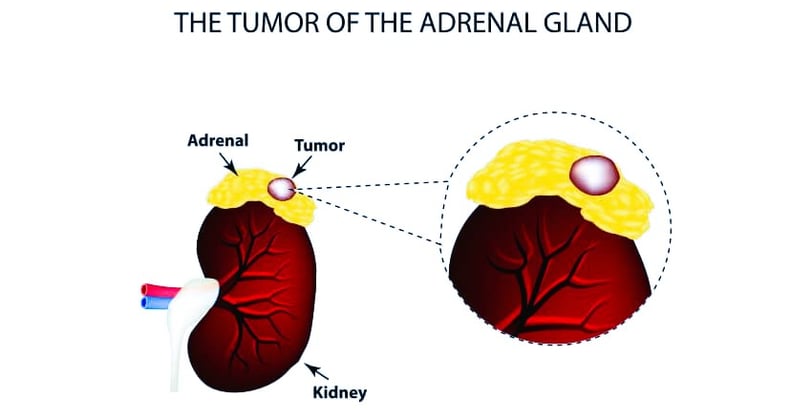Adrenal Gland Cancer: Causes, Symptoms, and Treatment
Explore the intricacies of adrenal gland cancer, delving into its underlying causes, recognizing key symptoms, and understanding available treatment options.


The adrenal glands are small, triangular-shaped organs located on top of each kidney. They play a crucial role in producing hormones that regulate various bodily functions. However, like any other organ, the adrenal glands can be affected by cancer. Adrenal gland cancer, also known as adrenocortical carcinoma, is a rare form of cancer that develops in the outer layer of the adrenal glands. In this article, we will explore the causes, symptoms, and treatment options for adrenal gland cancer.
Causes:
The exact cause of adrenal gland cancer is not yet fully understood. However, certain risk factors have been identified. These include a family history of adrenal gland cancer, genetic conditions such as Li-Fraumeni syndrome and Beckwith-Wiedemann syndrome, and certain hereditary cancer syndromes like multiple endocrine neoplasia type 1 (MEN1) and Carney complex. Exposure to radiation therapy and certain chemicals may also increase the risk of developing adrenal gland cancer.
Symptoms:
The symptoms of adrenal gland cancer can vary depending on the stage of the disease. In the early stages, there may be no noticeable symptoms. However, as the tumor grows, it can cause a range of symptoms such as: 1. Abdominal pain or a mass in the abdomen
2. Unexplained weight loss
3. Fatigue and weakness
4. High blood pressure
5. Irregular menstrual periods in women
6. Excessive hair growth in women
7. Enlarged breasts in men
8. Changes in the skin, such as easy bruising or stretch marks
9. Mood swings and irritability It is important to note that these symptoms can also be caused by other conditions, so it is essential to consult a healthcare professional for an accurate diagnosis.
Treatment:
The treatment of adrenal gland cancer typically involves a multidisciplinary approach, including surgery, chemotherapy, and radiation therapy. The specific treatment plan will depend on factors such as the stage of the cancer, the size and location of the tumor, and the overall health of the patient. Surgery is often the primary treatment for adrenal gland cancer. The goal is to remove the tumor and any surrounding tissue that may be affected. In some cases, a partial or complete removal of the affected adrenal gland may be necessary. Chemotherapy may be recommended before or after surgery to help shrink the tumor or kill any remaining cancer cells. Radiation therapy, which uses high-energy X-rays or other forms of radiation, may also be used to destroy cancer cells and prevent their growth. In advanced cases where the cancer has spread to other parts of the body, targeted therapy or immunotherapy may be considered. These treatments aim to specifically target cancer cells or boost the body's immune system to fight against cancer.
In conclusion, adrenal gland cancer is a rare form of cancer that affects the adrenal glands. While the exact cause is unknown, certain risk factors have been identified. Recognizing the symptoms and seeking prompt medical attention is crucial for early detection and effective treatment. A multidisciplinary approach, including surgery, chemotherapy, and radiation therapy, is often used to treat adrenal gland cancer. If you suspect any symptoms or have concerns, consult with a healthcare professional for a proper evaluation and guidance.
